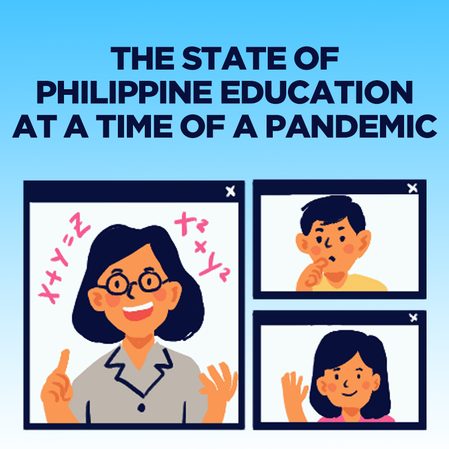SUMMARY
This is AI generated summarization, which may have errors. For context, always refer to the full article.
![[Science Solitaire] Screen loses to paper](https://www.rappler.com/tachyon/2021/03/screen-loses-to-paper-march-27-2021.jpg)
When I broke up with someone in my early 20’s, his most urgent demand was for me to give him back all the letters he had written to me, as he had wanted give me back all the letters I had sent to him.
The Gen X brain (those born in the mid ’60s to ’80s), much like the reading/writing generations before it, is made of paper. We carried and wrote on actual notebooks; stuck posters with song lyrics and poetry in our rooms; read leather, hard, and paper bound books; collected stationery, wrote on them, and inserted them into matching envelopes; and sent postcards and letters to everyone we knew, limited only by the budget we had for stamps.
I am a creature particularly given to writing. So on the night he assigned where we were to give back each other’s letters, I gave him back all his cards and letters, which filled a small brown envelope. He had to carry a box to contain mine. That night, the weight and volume of the paper exchanged said much about our relationship.
From where I wrote (am not sure about what he thought or how he thought about this), we had a “paper” relationship, which ironically seemed to have built richer memories and insights at least for me, even if the original intention of the relationship did not last. But Gen X is precariously positioned across a timeline where we also had to learn to use computers when we were in college, and especially when we started our first jobs. Now in our 50’s, where the world is not only mainly viewed but processed and responded to onscreen, I am always wondering how much of my understanding of stuff is “crafted by paper” and how much of it is “screen-processed.”
Researchers also wonder about this, and when they do, they get serious and design experiments to test their hunches. They have suspected that the medium by which you process information, paper or laptop, smartphone or tablet, does affect the way you learn. By “learn,” it means the way you retain information, how you process it – whether superficially – or how you arrive at a solid conceptual understanding of it, and even an awareness of how you yourself understand it.
A study in 2016 proved that students were able to retain memorized words better if they wrote them on paper than those who typed them (but they typed them a lot faster, which is why “typing” is not necessarily “writing”) on a computer. And then a 2014 study revealed that conceptual understanding was better when students wrote notes on paper than typed on laptops. “Conceptual” means a deep understanding, and “deep” means, you get the underlying meaning of something and, therefore, you can apply it across information you encounter. There seems to be something about physical paper, as a 2007 study showed– its non-shrinkable or non-expandable size unlike screens – that treats the paper like a landscape, where it can lay down markers for retention, retrieval, and understanding.
Even for reading, this 2013 study showed that students scored better in reading comprehension when they read from print rather than on the screen. The most recently published study this week demonstrated that using paper activated brains that reflect a deeper coding for that information versus information typed on screens. The “paper” users performed much better in learning than the “screen” users. Paper users not only remembered more accurately, they understood it better and the brain parts that were alert when this was happening revealed a lot about why this is so. These were the brain parts associated with “higher-order” brain functions, which could account for the “deeper learning.”
What could this mean? This could mean we are in trouble, as the main option being pursued for learning for young people is through electronic devices during the pandemic. If these studies are confirmed over and over, it would mean that our students are not learning as deeply as they should. These are already evident in observations from parents and teachers who are struggling to keep these young people motivated to go on online classes to learn.
I do not have one simple solution. Nothing complex could be solved by just one solution. I just have maybe a tip or advice to those who are learning online. Don’t ignore paper. Read a physical book – any book that is around – and notice everything about it. Is it formal or casual? Is it clear or mysterious? How does it make you feel when you read it – bored or intrigued? Do you want to write like that or differently? How would you write about a topic like that? Or even how would you feel if you were forced to write about a topic like that? Write all that down on paper. Repeat. Repeat as much as you can for the rest of your life. Watch how your paper brain becomes an origami – engaged in the world beyond its screen appearance. – Rappler.com
Maria Isabel Garcia is a science writer. She has written two books, “Science Solitaire” and “Twenty One Grams of Spirit and Seven Ounces of Desire.” You can reach her at sciencesolitaire@gmail.com.
Add a comment
How does this make you feel?

![[OPINION] Are students actually learning during this pandemic?](https://www.rappler.com/tachyon/2020/09/are-we-really-learning-September-8-2020.jpg?fit=449%2C449)
There are no comments yet. Add your comment to start the conversation.